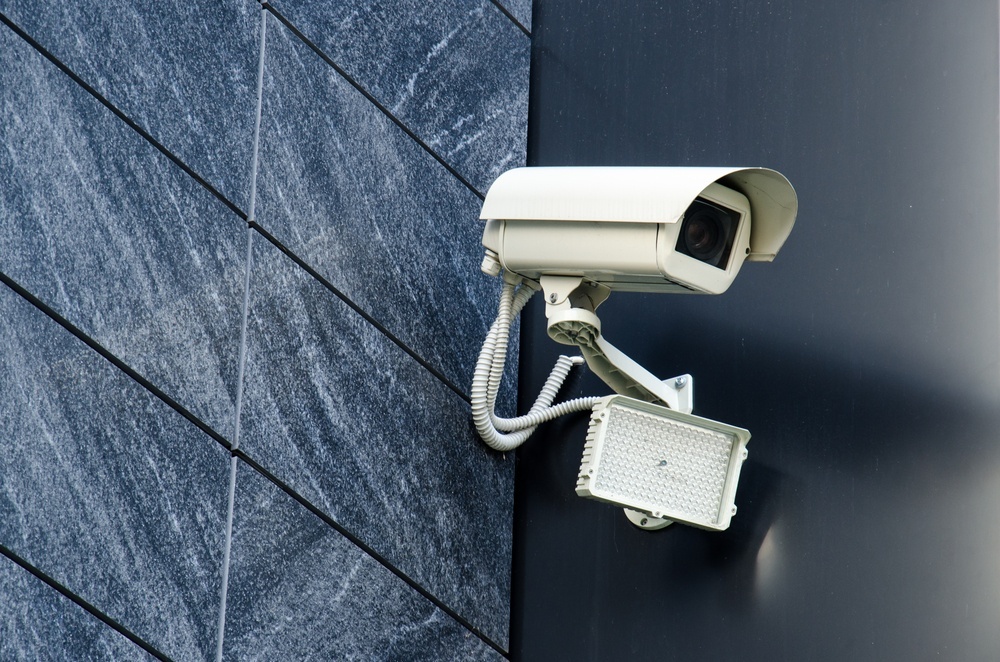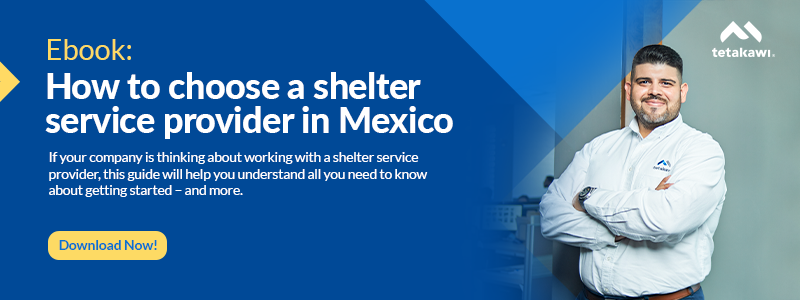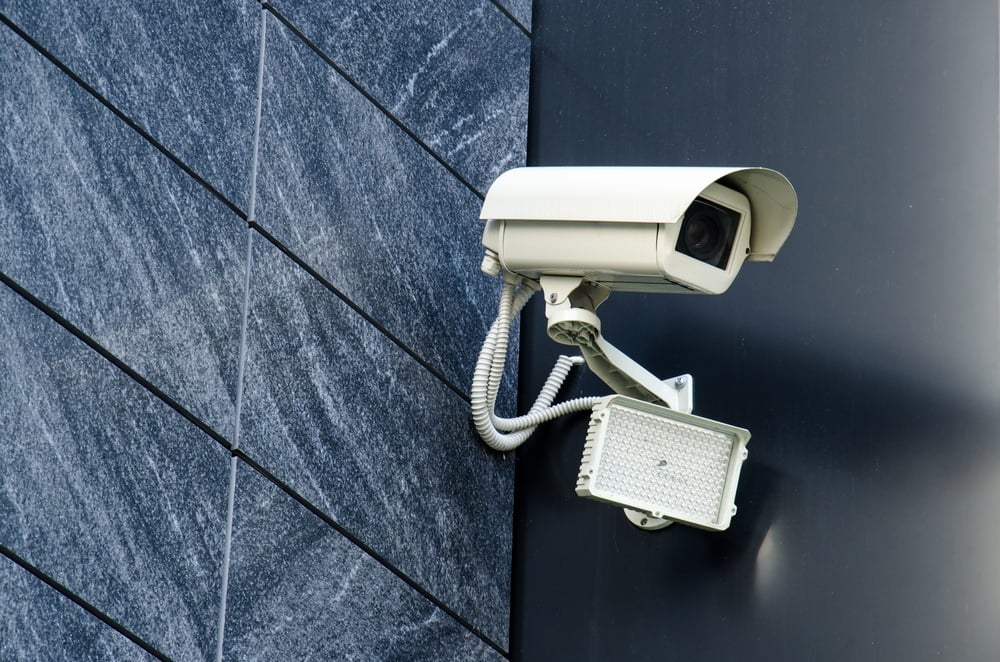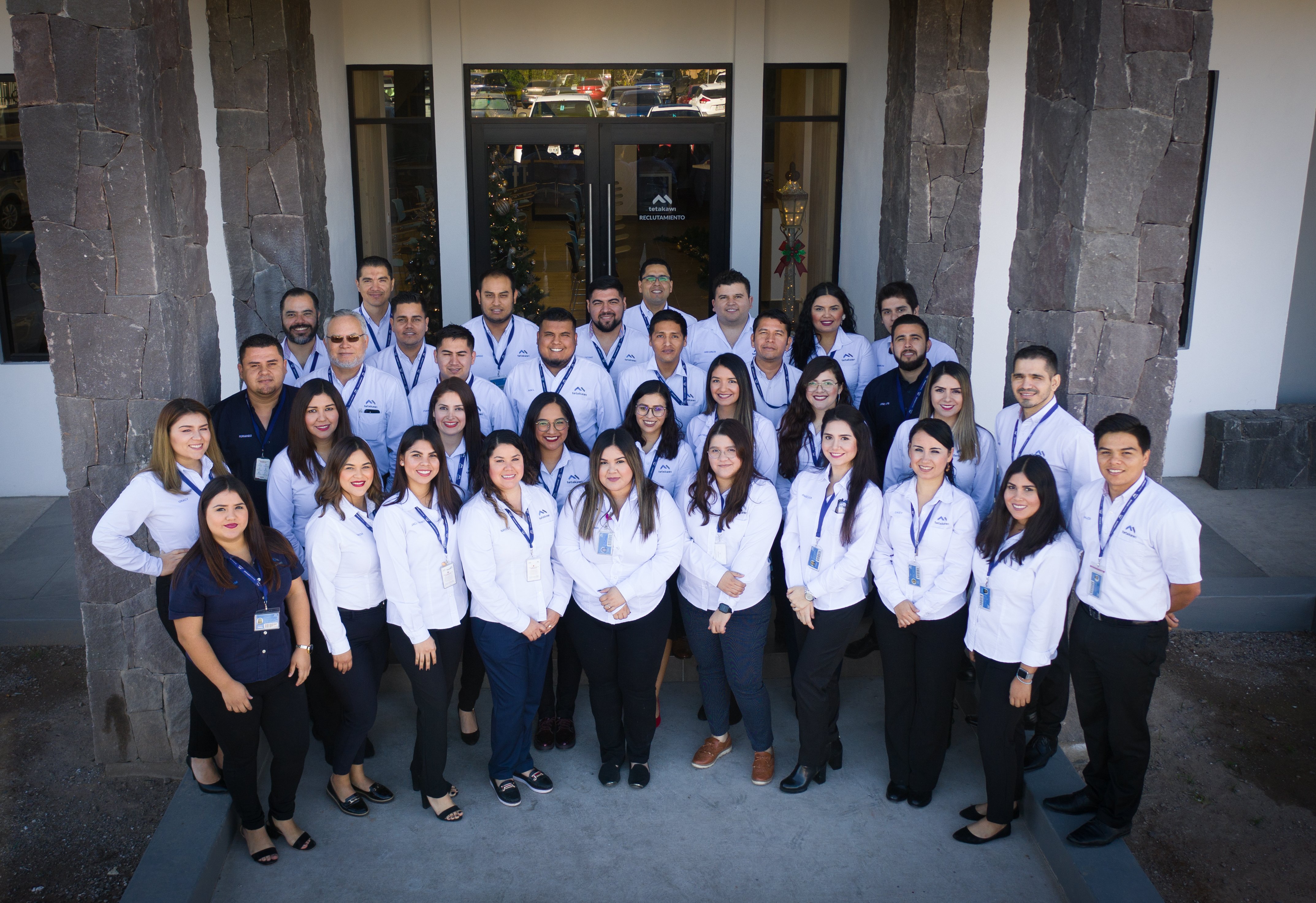Navigating the complexities of Mexico's import and export regulations is crucial for foreign manufacturers and investors looking to capitalize on the opportunities in this vibrant market. This extensive guide delves into Mexico's trade processes, including the IMMEX program, customs brokerage, leveraging trade agreements like the USMCA, and detailed compliance requirements. Aimed at providing a thorough understanding, this guide is an essential resource for efficient and compliant operations in Mexico's dynamic market.
Mexico's Customs Landscape
The Mexican customs system, a federal entity, plays a pivotal role in regulating cross-border trade. Governed by the Tax Administration Service (SAT) and the National Customs Agency (ANAM), this system is designed to enforce compliance and manage customs clearance efficiently. Understanding the federal nature of these agencies and their regulations is vital for businesses engaged in international trade with Mexico.
- Tax Administration Service (SAT): SAT is responsible for enforcing customs and international trade rules at a federal level. It oversees tax collection audit processes and ensures businesses adhere to necessary regulations.
- National Customs Agency (ANAM): ANAM, an independent entity since 2022, manages customs clearance and compliance, ensuring the security and efficiency of Mexico's customs operations.
The Role of Customs Brokers in Mexico
All companies need a customs broker to ship goods to and from Mexico. This isn’t a best practice – it’s the law. A Mexican broker is authorized by SAT to perform the duties required for the clearance of goods through customs. This includes clearing goods for temporary importation.
This entity serves as an importing and exporting company’s legal representation. The Mexican customs broker is liable for taxes and other payments impacting imports and exports. Generally, the fee charged by the customs broker is a percentage of the value of the goods being imported or exported.
Mexican customs officials will carefully inspect goods before clearing them through the Mexican border. This inspection of part numbers and quantities may be particularly extensive for goods entering Mexico for the first time. However, a reliable customs broker will know this and can help manufacturers navigate the process and handle unexpected events during customs clearance.
A good customs broker can help streamline the import/export process in Mexico and reduce the time when goods are kept in customs. An experienced shelter service provider can recommend good customs brokers who can help manufacturers reap these advantages. A list of authorized customs brokers can be found on ANAM’s Directory, offering businesses a resource to find qualified professionals.
Importing into Mexico
Importing goods into Mexico involves a series of steps, each critical for compliance and successful trade operations:
- Registration with the Official Register of Importers: Essential for verifying a company's eligibility to import goods into Mexico. This registration ensures compliance with Mexican trade laws and regulations.
- The Pedimento (Customs Declaration Form): A crucial document for all commercial imports, the Pedimento details the nature, quantity, and value of the goods being imported, serving as the primary document for customs clearance.
- Commercial Invoice: This document must accurately detail the value of the merchandise being imported. It is used for customs valuation and is essential for determining applicable duties and taxes.
- Packing List: A detailed packing list is required for each box of goods being imported. It helps in verifying the contents of the shipment and ensures that all items are accounted for during the customs process.
- Bill of Lading: This transport document, issued by the carrier, is necessary for the transportation of goods and is used to confirm the receipt and delivery of the shipment.
- Quality Certification Documents: For certain categories of goods, documents demonstrating compliance with Mexican product safety and performance regulations are required. These certifications ensure that the goods meet the necessary standards set by the destination country.
- Additional Requirements for Sensitive Products: Importing certain sensitive products, such as chemicals, pharmaceuticals, or agricultural goods, may require additional permits and compliance with specific regulations.
- Customs Duties and Taxes: Understanding and preparing for any applicable customs duties and taxes is crucial. This includes knowing the tariff classifications and the rates applicable to the specific goods being imported.
- Non-Tariff Barriers and Trade Agreements: Addressing non-tariff barriers like quotas or import licensing requirements is important. Also, consider how trade agreements (like the USMCA) can impact the import process, potentially offering reduced tariffs or streamlined procedures.
- Inspection and Compliance Verification: Be prepared for customs inspections and compliance verification, which can include checks for contraband, accurate valuation, and adherence to import restrictions.
- Role of a Customs Broker: A customs broker can navigate the complexities of customs regulations, assist with paperwork, and help ensure that all requirements are met for a smooth import process.
- Logistics and Transportation Management: Effective logistics planning, including the selection of shipping methods, coordination of transportation, and management of delivery schedules, is key to successful importing.
- Post-Entry Audits and Record Keeping: Maintain accurate records for potential post-entry audits by customs authorities. This is crucial for compliance and addressing any discrepancies post-import.
Exporting from Mexico
Having explored the detailed requirements and processes for importing goods into Mexico, it's equally important to understand the nuances of exporting products from Mexico. The export process, while sharing some similarities with importing, involves the following set of specific regulations and documentation:
-
RFC Registration: Essential for verifying a company's legal and tax status in Mexico, RFC registration is a prerequisite for exporting goods. It confirms the exporter's adherence to Mexican trade laws and regulations.
-
The Pedimento (Customs Declaration Form): This critical document for all commercial exports details the nature, quantity, and value of the goods being exported. It serves as the primary document for customs clearance and must be accurately completed to avoid delays.
-
Commercial Invoice: The commercial invoice must provide a detailed value of the merchandise being exported. It is crucial for customs valuation and determining any applicable duties and taxes in the destination country.
-
Packing List: Similar to importing, a detailed packing list for each box of goods being exported is required. This list facilitates the verification of the shipment's contents and ensures all items are accounted for during customs processing.
-
Bill of Lading: Issued by the carrier, this transport document is necessary for the transportation of goods. It confirms the terms of shipping and delivery to the importing company.
-
Quality Certification Documents: Exporters must provide documents demonstrating compliance with the product safety and performance regulations of the destination country. These certifications are crucial to meet international standards and facilitate market entry.
-
Export Licensing for Controlled Goods: Certain goods may require specific export licenses, especially if they are subject to international regulations or controls, such as dual-use goods or certain technologies.
-
Customs Duties and Export Taxes: Understanding any applicable export duties and taxes is important. Exporters should be aware of any tax implications or rebates associated with exporting goods from Mexico.
-
Adherence to Trade Agreements: Exporters should leverage trade agreements like the USMCA, which can offer preferential tariff treatments and facilitate smoother export processes.
-
Customs Broker Assistance: Engaging a customs broker can be particularly beneficial in navigating the complexities of export regulations and paperwork. They ensure all requirements are met for a smooth export process.
-
Logistics and Transportation Management: Effective management of logistics, including selecting appropriate shipping methods and coordinating transportation, is crucial for successful exporting.
-
Record Keeping for Post-Export Audits: Maintaining accurate records is essential for potential post-export audits by customs authorities. Proper documentation helps address any discrepancies and ensures compliance.
IMMEX Program
For foreign manufacturing companies, the IMMEX (Industria Manufacturera, Maquiladora y de Servicio de Exportación) program represents a significant opportunity within the Mexican trade framework. This program is tailored to enhance Mexico's manufacturing and export capabilities, offering substantial benefits for companies engaged in these sectors. Understanding and leveraging the IMMEX program is a key step for businesses looking to optimize their operations in Mexico.
- Program Benefits: IMMEX allows for significant cost savings and operational efficiencies by permitting the temporary importation of materials without the associated import taxes and duties.
- Certification Process: Obtaining IMMEX certification involves a detailed application process, typically taking 6-10 months. It requires comprehensive documentation and adherence to specific regulations.
- Compliance Requirements: Companies must comply with various requirements, including the use of an automated inventory control system as mandated by Annex 24. This system is crucial for tracking the temporary importation of goods and ensuring that they are either exported or used within a specified timeframe, usually 18 months.
Annex 24 and Its Importance in the IMMEX Program
Annex 24 is a critical component of the IMMEX program, setting forth specific requirements for an automated inventory control system. This system is not just a tool for efficient management but a mandatory compliance requirement for companies operating under the IMMEX program. Its primary functions include:
- Record Keeping: Maintaining detailed records of all temporary imports and exports, including quantities, descriptions, and values.
- Tracking: Ensuring real-time tracking of the location and status of imported goods throughout their lifecycle in Mexico, confirming their use in accordance with IMMEX regulations.
- Reporting: Regularly submitting accurate reports to Mexican customs authorities, demonstrating adherence to IMMEX rules and the proper use of imported goods.
Staying Compliant with Annex 24:
- Implementing Specialized Software: Companies should use inventory management software that meets the specific tracking and reporting requirements of Annex 24.
- Conducting Regular Audits: Periodic internal reviews of the inventory system help ensure ongoing compliance with IMMEX regulations.
- Training Staff: Employees handling inventory and compliance should be well-versed in Annex 24 requirements.
- Working with Customs Brokers: Collaborating with experienced customs brokers can aid in maintaining compliance and navigating the complexities of the IMMEX program.
Adherence to Annex 24 is essential for companies in the IMMEX program to avoid legal issues and ensure efficient import-export operations.
IVA Certification and Its Role in Conjunction with IMMEX
IVA (Value Added Tax) certification is a significant aspect for businesses operating under the IMMEX program. It offers tax benefits that are crucial for cost efficiency in manufacturing and export operations:
-
Tax Exemption Benefits: IVA certification allows IMMEX companies to temporarily import goods without paying the standard 16% IVA. This exemption significantly reduces the cost of raw materials and components used in manufacturing processes.
-
Eligibility and Application: To obtain IVA certification, companies must be actively enrolled in the IMMEX program and comply with its regulations. The application process involves demonstrating adherence to Mexican tax laws, including accurate financial record-keeping and regular tax filings.
Maintaining Compliance with IVA Certification:
- Accurate Record-Keeping: Companies must maintain precise records of all transactions related to temporary imports, ensuring transparency and compliance with tax regulations.
- Regular Tax Filings: Timely and accurate tax filings are essential to retain the IVA certification. These filings should reflect all relevant import activities and comply with Mexican tax laws.
- Audits and Inspections: Companies should be prepared for potential audits or inspections by tax authorities. Regular internal audits can help ensure that all IVA-related processes are in order.
- Collaboration with Tax Experts: Working with tax consultants or advisors who specialize in Mexican tax law can provide additional assurance of compliance. They can offer guidance on the complexities of IVA certification and help navigate any changes in tax regulations.
By effectively managing IVA certification requirements, companies in the IMMEX program can maximize their tax benefits, contributing to overall operational efficiency and cost savings in their manufacturing and export activities.
OEA Certification: Mexico's Equivalent to C-TPAT and Its Benefits

OEA (Authorized Economic Operator) certification, recognized as Mexico's equivalent to the U.S. Customs-Trade Partnership Against Terrorism (C-TPAT), is a critical certification for businesses engaged in international trade, particularly for those in the IMMEX program:
-
Mexico's Response to Global Security Standards: OEA is Mexico's answer to the global need for secure trade practices, similar to C-TPAT in the United States. It represents a commitment to safe and efficient international trade by strengthening security throughout the supply chain.
-
Enhanced Trade Facilitation and Security: OEA certification streamlines customs processes, offering quicker clearance and reduced inspections. This is especially beneficial for high-volume export operations typical of IMMEX companies, ensuring faster market access.
-
Key Benefits of OEA Certification:
- Expedited Customs Procedures: OEA-certified companies enjoy priority treatment at customs, including fewer cargo inspections and priority processing, which translates to time and cost savings.
- Mutual Recognition: OEA is often part of mutual recognition agreements with similar programs in other countries, like C-TPAT, which can lead to expedited procedures in foreign ports.
- Improved Security and Trust: Achieving OEA status demonstrates a company's commitment to security and compliance, enhancing its reputation with customs authorities and business partners.
Maintaining OEA Certification:
- Commitment to Security and Compliance: Continuous adherence to OEA standards is essential, involving regular updates of security protocols and compliance practices.
- Internal Audits and Training: Regular internal audits and staff training are crucial to ensure ongoing compliance with OEA requirements.
- Synergy with IMMEX: The efficiency and security enhancements of OEA certification complement the IMMEX program, adding value to the import-export process and making it a valuable asset for IMMEX participants.
PROSEC Program: Enhancing IMMEX with Sector-Specific Benefits
Following the discussion on OEA certification, the PROSEC (Programa de Promoción Sectorial) program emerges as another key component in Mexico's trade facilitation framework, particularly for businesses engaged in the IMMEX program:
-
Focused Tariff Reductions for Manufacturing: PROSEC offers reduced import tariffs on certain raw materials, machinery, and equipment, specifically targeting key manufacturing sectors. This can significantly lower production costs for companies involved in these sectors.
-
Eligibility and Strategic Integration with IMMEX: To benefit from PROSEC, companies must be part of the eligible manufacturing sectors and demonstrate the use of imported goods in specific manufacturing processes. This aligns well with the production-focused nature of IMMEX, allowing companies to combine the benefits of both programs for enhanced cost efficiency.
Leveraging PROSEC alongside IMMEX and OEA:
-
Cost-Effective Sourcing: By utilizing PROSEC's tariff reductions in conjunction with IMMEX's tax benefits, companies can achieve a more cost-effective manufacturing process, enhancing their competitive edge in the global market.
-
Compliance and Documentation: Adhering to PROSEC's requirements involves maintaining detailed records of imports, ensuring they align with the program's sector-specific criteria, and demonstrating compliance with both IMMEX and PROSEC regulations.
-
Synergistic Benefits: The strategic use of PROSEC, especially when combined with the operational efficiencies of IMMEX and the security enhancements of OEA certification, can significantly boost a company's manufacturing and export capabilities in Mexico.
Leveraging FTAs in Mexico
Having explored the IMMEX, OEA, and PROSEC programs, which provide specific operational and sectoral benefits, it's crucial to understand how Mexico's participation in free trade agreements further shapes the landscape for international trade. These agreements play a pivotal role in expanding market access and enhancing the competitive positioning of businesses engaged in Mexican trade.
- USMCA and Its Impact: The United States-Mexico-Canada Agreement (USMCA), which replaced NAFTA, is a cornerstone of North American trade. It offers enhanced market access and reduced trade barriers, making it a crucial agreement for businesses operating in Mexico. The USMCA includes updated provisions on digital trade, intellectual property, and labor standards, reflecting modern trade dynamics.
- Other Key Agreements: Beyond USMCA, Mexico has FTAs with over 50 countries, including agreements within Latin America, Europe, and Asia. These agreements open up diverse markets for Mexican products and offer Mexican businesses a wide range of opportunities for expansion and collaboration.
Shelter Services: Simplifying Operations for Foreign Companies

After delving into the intricacies of Mexico's trade regulations, including the IMMEX program, OEA and PROSEC certifications, and leveraging free trade agreements, it becomes evident that navigating these processes can be complex. This is where shelter services come into play, offering a streamlined solution for foreign companies looking to establish or expand their operations in Mexico.
-
Navigating Complexity: The myriad of regulations and requirements for successful trading in Mexico can be daunting for foreign companies. Shelter services simplify these processes, allowing businesses to focus more on their core production activities.
-
Comprehensive Compliance Support: Shelter providers, like Tetakawi, offer expertise in ensuring complete compliance with all Mexican trade regulations. With teams of experts on both sides of the border, they provide invaluable guidance and support, ensuring that their clients' operations run smoothly and in full compliance with all legal requirements.
-
Operational Efficiency: By leveraging the knowledge and infrastructure of shelter services, companies can significantly reduce the time and resources required to manage customs, certifications, and logistics. This efficiency is particularly beneficial for companies utilizing programs like IMMEX, as shelter services are well-versed in the specific requirements of these programs.
-
Economies of Scale, Scope, and Learning: Shelter companies bring the advantage of economies of scale, scope, and learning due to their experience in handling various aspects of trade for multiple clients. This experience translates into more efficient and cost-effective operations for their clients.
-
Focus on Core Business Activities: With the administrative and regulatory aspects handled by shelter services, companies can concentrate on their primary business functions, such as production and market expansion.
Tetakawi: A Case in Point
-
US-Based Expertise for Cross-Border Operations: As a US-based company with extensive experience in Mexican trade, Tetakawi offers a unique advantage. They understand the challenges and opportunities from both sides of the border, providing tailored solutions that fit the specific needs of their clients.
-
End-to-End Support: Tetakawi provides end-to-end support, from establishing operations in Mexico to ensuring ongoing compliance and operational efficiency. Their services are designed to make the transition into the Mexican market as seamless as possible for foreign companies.
Get Import & Export Support in Mexico
Navigating Mexico's import and export landscape is a complex yet rewarding endeavor. From understanding the IMMEX program's nuances to leveraging free trade agreements like the USMCA, each step requires careful consideration and compliance. This guide has explored the critical aspects of Mexico's trade processes, offering insights into customs brokerage, the role of customs brokers, and the importance of certifications like IVA and OEA, all integral to successful trading in Mexico.
For expert guidance through these intricate processes, Tetakawi stands as a beacon of expertise. With their comprehensive understanding of Mexico's trade regulations and a proven track record in assisting foreign companies, Tetakawi is well-equipped to answer any questions and provide tailored support. Whether it's navigating the IMMEX program or ensuring compliance with Mexican customs, Tetakawi's team is ready to help you optimize your operations and succeed in Mexico's dynamic market.
To learn how we can help you develop an effective strategy for managing your imports and exports, contact us today.
Subscribe
Sign up and stay informed with tips, updates, and best practices for manufacturing in Mexico.
Table of Contents:
- Mexico's Customs Landscape
- The Role of Customs Brokers in Mexico
- Importing into Mexico
- Exporting from Mexico
- IMMEX Program
- Annex 24 and Its Importance in the IMMEX Program
- IVA Certification and Its Role in Conjunction with IMMEX
- OEA Certification: Mexico's Equivalent to C-TPAT and Its Benefits
- PROSEC Program: Enhancing IMMEX with Sector-Specific Benefits
- Leveraging FTAs in Mexico
- Shelter Services: Simplifying Operations for Foreign Companies
- Get Import & Export Support in Mexico






